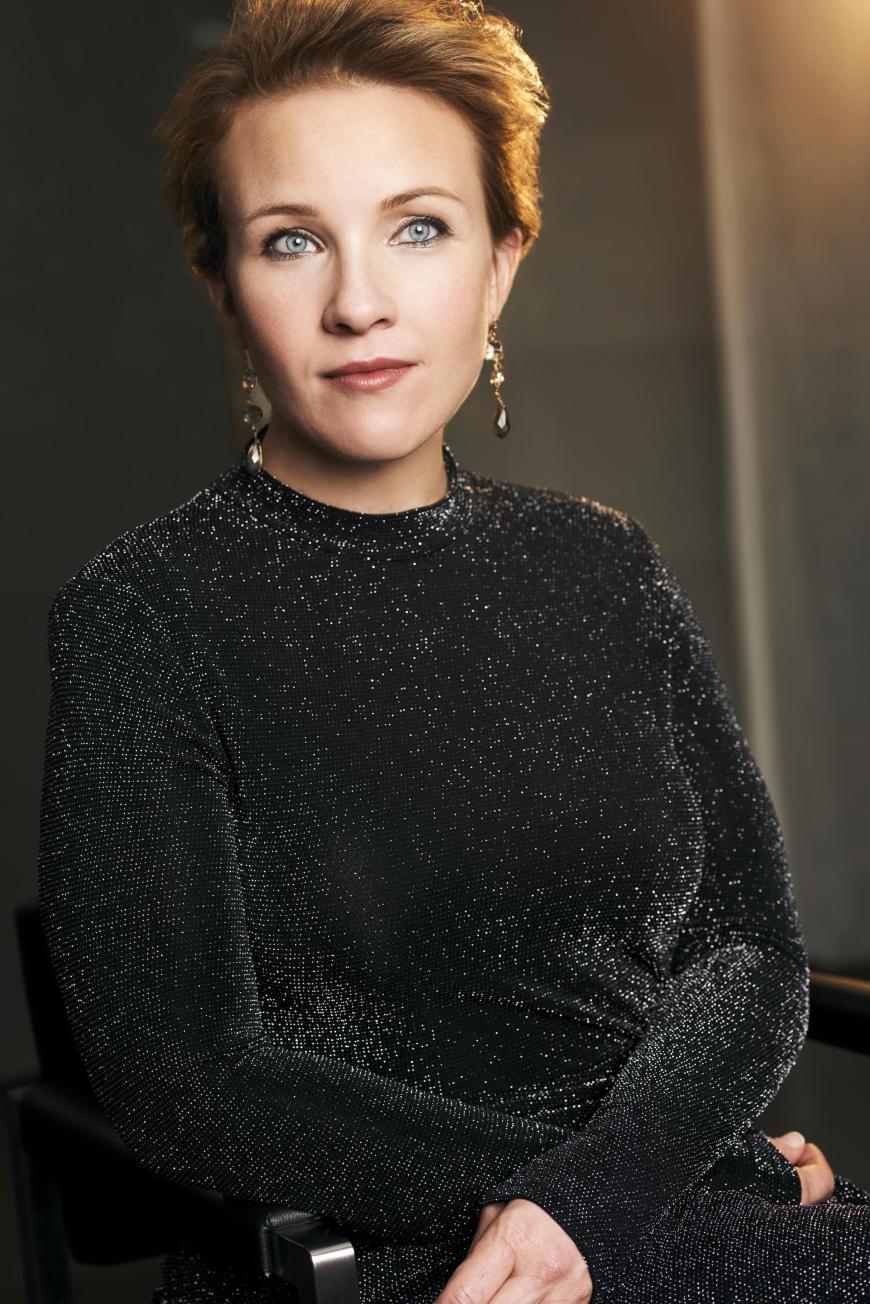
Whether it’s the medieval canso, Elizabethan ayre, classical art song, flamenco cante, or tunes by Bob Dylan and Joni Mitchell, the human voice accompanied by plucked strings has long been a profoundly intimate form of communication. On Saturday night, April 8 at Herbst Theatre, two Grammy-winning artists, mezzo-soprano Sasha Cooke and guitarist Jason Vieaux, made a persuasive case for the continued vitality of the combination in a radiantly beautiful concert that featured music from three centuries and continents, presented by San Francisco Performances and the Omni Foundation.
The evening began with Manuel de Falla’s Siete canciones populares españolas, consisting of seven Spanish folk melodies set to Falla’s original piano accompaniment. Though the songs are popular in arrangements for a wide variety of instruments, the guitar was particularly effective in highlighting the Spanish idiom. Cooke and Vieaux adeptly conveyed the longing, sorrow, and humor of the material and were mutually attentive to each shift in mood.

Vieaux offered two solo guitar selections. The second movement of Pat Metheny’s Four Paths of Light is a tender ballad in traditional Brazilian choro rhythm, and Vieaux played its opening repeated chords with a long and gentle dynamic arc, which created a feeling of transcendent peace long before an expressive and contemplative melody made that mood personal. The performance was a revelation. Vieaux took full advantage of the many captivating effects offered by Roland Dyens’s arrangement of “A Felicidade” by Antônio Carlos Jobim. He played the driving bossa nova rhythm, muted chords, glissandi, color changes, and percussive effects with great flair and then gave the subsequent melody a sensitivity that reflected the song’s unsung lyrics, “Sadness has no end / Happiness does.”
Composer Peter Scott Lewis contributed two of his Three Songs From Ish River to the program. Vieaux played his part of “What Day Is It Now?” with great brio while Cooke sensitively declaimed the text by poet Robert Sund. In the second song, “Going Out to Meet the Moon Whales,” with text by the Haitian political exile Paulé Bartón, Cooke’s rich, expressive voice told of a beautiful nocturnal whale sighting in Lewis’s numinous setting. The composer, a San Francisco resident, was given extended applause and took a well-deserved bow.
The music of Brazilian composers Jaime Ovalle and Heitor Villa-Lobos followed. Ovalle’s “Azulão” is a tender song of unrequited love. Villa-Lobos’s Aria from Bachianas Brasileiras No. 5 featured several expressive solos for Vieaux and a haunting vocal line, at first a wordless vocalise and later a Portuguese song about the magical beauty of twilight. Cooke was magnificent throughout, and after a final guitar solo, she ended the set with a stunning, unaccompanied high note.
The guitar was popular in Franz Schubert’s Vienna, and he is said to have first worked out some of his songs on guitar when he couldn’t afford a piano. In any event, Vieaux provided a lovely accompaniment to Cooke’s beautiful performance of four Schubert songs: the dramatic “Gretchen am Spinnrade,” the lullaby “Schlummerlied,” the dreamlike “Nacht und Träume,” and finally, Schubert’s meditation on death, “Auf dem Wasser zu singen.”
Music from outside the classical tradition provided a wonderful end to the evening. Stephen Sondheim’s “Losing My Mind” (from Follies) was a portrait of romantic obsession, and his “Children Will Listen” (from Into the Woods) was not a promise of obedience but a warning that adults need to watch what they say. Cooke is as excellent an actress as she is a singer, and the set was delightful. Paul McCartney’s “I Will” and John Lennon’s “Julia” are familiar and much-loved tunes. No one in the audience needed the texts provided to enjoy the performance.
When the duo came out for an encore, Cooke told the audience she had asked Michael Tilson Thomas if he had any songs he thought would work for voice and guitar, and he gave her his “Not everyone thinks that I’m beautiful.” Andy Poxon did a lovely guitar arrangement for Vieaux, and the audience had a very special treat.




